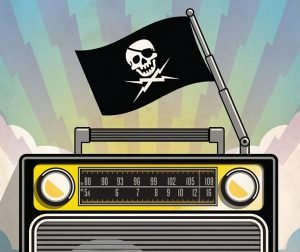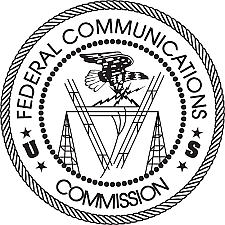
The FCC is hoping to have Congressional budget writers approve an additional $11 million of taxpayers money to combat illegal pirate radio operators according to a new story from InsideRadio . FCC Chairman Ajit Pai indicates a “substantial number of new agents” & equipment are needed to combat this problem, recently addressed with tough new laws approved by the Senate & the House. “Specifically, in order to combat the problem of illegal radio operations, the statute requires a sweeping process that will require new equipment and a substantial number of additional field agents to implement fully,” the FCC Chair told a Senate Appropriations subcommittee during a hearing on Tuesday. Pai said he hoped congressional budget writers would determine a “reasonable funding level” for the FCC that reflects that added cost, suggesting the agency’s budget for the upcoming fiscal year should be raised to $354 million.

FCC Chairmain Ajit Pai
Signed into law by President Trump last month, the Preventing Illegal Radio Abuse Through Enforcement Act, or “PIRATE” Act (S.1228) was unanimously approved by both the Senate and House. The new law raises fines on unlicensed station operators to $100,000 per day per violation, up to a maximum of $2 million. In addition to tougher fines on violators, the FCC would also be required to conduct sweeps in the five cities where pirate radio is the biggest problem—New York, Los Angeles, Chicago, San Francisco and Dallas—at least once a year. And then, within six months, field agents would be mandated to return to those markets to conduct “monitoring sweeps” to determine whether the unlicensed operators simply powered back up or changed frequencies. The agency would also be required to issue a report to Congress on an annual basis about its pirate-fighting efforts.

There are currently an estimated 300 pirates on the air, according to FCC estimates provided to the subcommittee by Commissioner Michael O’Rielly. Although he didn’t testify during Tuesday’s hearing, in a letter he urged lawmakers to give the FCC the money it needs to combat unlicensed radio operations.“Having proliferated in certain parts of the country, especially in the key markets of Boston, New York/Northern New Jersey, and Miami, pirate operators threaten the livelihood of legitimate stations, suppressing audience reach and advertising revenues,” said O’Rielly. He also alerted senators about the public safety implications posed by the interference pirates could cause for legal stations. “The Commission has its work cut out to meet expectations under the PIRATE Act,” said O’Rielly. But substantially increasing allowable penalties and requiring annual sweeps, among other changes, will help the FCC address the problem, he added.

While not condoning pirate radio operators or stations, the FCC & the NAB – lobbyists for the major broadcasting corporations – have overstated the issues with illegal broadcasting. While interference to licensed broadcasters or vital communications such as aircraft or first responders 2-way radio operation cannot be supported, there is less emphasis by the commission & NAB on this problem than there is the threat to NAB supported radio corporations. The NAB is far more concerned with the siphoning of listeners & advertisers to illegal stations. There is a real fear that listeners will find the programming on pirates more stimulating, informative or entertaining than that of licensed stations. The NAB has actually gone on record suggesting to Americans that merely listening to these illegal broadcasts is against the law, which is not the truth at all, nor is such a ludicrous suggestion enforceable. In addition, the NAB has tried efforts to fine & penalize businesses that advertise on pirate stations rather than their legit operations. While many pirates operate with less than quality, legal equipment, there are others that use professional broadcasting gear & legal broadcasting standards to transmit their signals, careful to not interfere with broadcasters or 2-way communications. As the FCC often states, some pirates use frequencies that deliberately interfere with licensed broadcasters. But a number of pirate operators are careful to avoid frequencies that could interfere & result in complaints from the stations or listeners. Regardless of one’s opinions of pirate radio operations, the FCC is determined to place on emphasis on this illegal activity as a means to gain larger operating budgets from lawmakers, while ensuring this favorite ‘hot-button’ issue receives the priority the NAB has pressured for.


Some comments may be held for moderation. (New users)